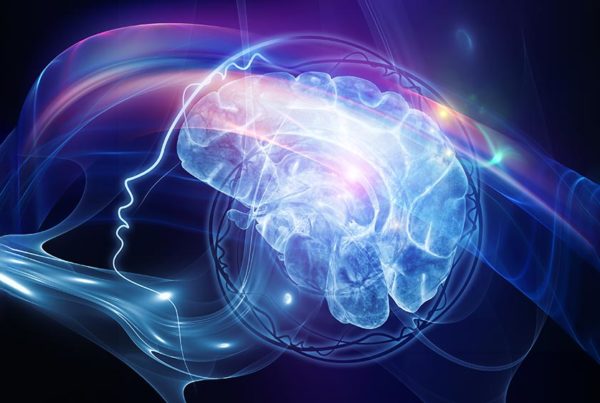Purposely avoiding healthy fats can impair health and fitness by causing a deficiency in essential fatty acids, and even producing a lack of energy. Those with disordered eating typically avoid too many fatty foods that supply these vital nutrients.
While a significant amount of body fat can be used to make energy, smaller but significant amounts play just as important a role in regulating metabolism. These fats can help us recover from a day at the office, an afternoon of yard work, training and racing, and all of life’s wear and tear — but only when properly balanced. In particular, this aspect of fat metabolism is associated with disease prevention.
The fats in our diet have many benefits:
- Disease prevention and treatment. Increasing certain dietary fats has been shown to reduce the growth or spreading of cancer and improve recovery in heart disease. Many brain problems, including cognitive dysfunction such as Alzheimer’s disease, can also be prevented with fats.
- Energy. Fat not only helps produce long-term energy but prevents excessive dependency upon short-term energy needs from sugar.
- Hormones. The hormonal system is responsible for controlling many healthy functions in our brain, muscles, throughout the metabolism, and elsewhere. The hormones produced in various glands (adrenals, thymus, thyroid, kidneys, etc.) are dependent on fat.
- Oxidative Stress. Eicosanoids are hormone-like substances necessary for such normal cellular function as regulating inflammation (as discussed above), hydration, circulation, and chemical free radicals. These substances are produced directly from fat in the diet.
- Insulation. The body’s ability to store fat permits humans to live in most climates, especially in areas of extreme heat or cold.
- Healthy skin and hair. Fat has protective qualities that also give skin the soft, smooth, and unwrinkled appearance that many people try to achieve through expensive skin conditioners. Without this protection, water and water-soluble substances such as chemical pollutants would enter the body through the skin.
- Digestion. Bile from the gall bladder is triggered by fat in the diet, which helps aid in the digestion and absorption of important fats and fat-soluble vitamins.
- Support and protection. Stored fat offers physical support and protection to vital body parts, including the organs and glands. This is particularly important for runners who have higher levels of gravity stress. Fat acts as a natural, built-in shock absorber, cushioning the body and its various parts from the wear and tear of training, and helps prevent organs from sinking due to the downward pull of gravity.
- Vitamin and mineral regulation. Most people know that vitamin D is produced by exposure of the skin to the sun. However, it is actually cholesterol in the skin that allows this production to occur.
- Taste. A favorite function of fat is that it makes food delightfully palatable. Fat also satisfies your physical hunger by increasing the feeling of fullness.
- The brain. This organ is 60 percent or more fat. Without healthy fats, the brain cannot function normally.
Other Dietary Factors
In addition to balancing dietary fat and obtaining adequate EPA, a number of other dietary factors also significantly affect inflammation. These include:
- Refined carbohydrates, including sugar and flour, can convert omega-6 fats to inflammatory chemicals.
- A balanced, healthy diet void of junk food provides specific nutrients that assist in controlling inflammation, including vitamins B6, C, E, niacin, and the minerals magnesium, calcium and zinc.
- Adequate intake of quality protein foods.
- Certain phytonutrients found in ginger, turmeric, citrus peel and foods in the onion family — shallots, chives and garlic — may help reduce inflammation.
- Excess stress generates inflammatory chemicals.
- Aging increases the risk of fat imbalance, and we can compensate for this by being as strict as possible with diet and lifestyle, starting right now.
Monounsaturated Fats
These should make up the bulk of dietary fat. Monounsaturated fats, also referred to as oleic or omega-9, have been shown to have many health benefits: helping prevent cancer, heart disease, obesity, and other chronic illnesses.
Those who eat a Mediterranean diet have a lower incidence of obesity and diseases. This diet is relatively high in monounsaturated fat, which may be the key reason for its health benefits. In some cases, we know how monounsaturated fat can prevent disease. This fat is known to raise “good” HDL cholesterol and lower “bad” LDL cholesterol, which can greatly improve cardiovascular health.
Foods highest in monounsaturated fats include avocados, almonds, and macadamia nuts, with other nuts and seeds containing moderate amounts. Olive oil is very high in monounsaturated fat and is the best oil for use on salads or other foods.
Extra-virgin olive oil is the best choice because it is the least processed and most nutritious. It is obtained from the whole fruit by using a cold-press technique, which does not alter the natural antioxidants, phytonutrients, or quality of the oil. The most potent phytonutrients in olive oil are phenols, which give the oil its slightly bitter taste. Very high amounts of phenols are found in extra-virgin olive oil. Phytonutrients, including phenols, are virtually absent in almost all other oils.
Monounsaturated fat is also very stable to heat, virtually immune to oxidation through cooking or exposure to air and light.
By using extra virgin olive oil for most of your oil needs, as well as eating foods that are high in health-promoting monounsaturated fat, such as avocados and almonds, you’ll be taking an important step to balancing your dietary fats.








